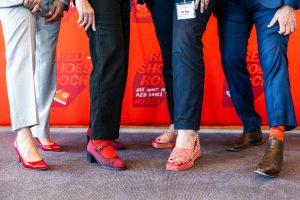New research has revealed that two-thirds of Australian women who breastfeed did not feel that they fully understood the risks of drinking alcohol while breastfeeding.
A Kantar Public study commissioned by the Foundation for Alcohol Research and Education (FARE) of women who were or had recently been breastfeeding (in the past two years) and usually drank alcohol (when not pregnant or breastfeeding), found that:
- 67% felt that they do not fully understand the risks of alcohol use while breastfeeding
- 65% were not aware of the National Health and Medical Research Council’s Alcohol Guideline for women who are breastfeeding
- 93% of women who had consumed alcohol while breastfeeding had employed some harm minimisation strategy, however many were using ineffective harm minimisation strategies.
FARE CEO, Ms Caterina Giorgi said the new research highlighted the need for more information on alcohol and breastfeeding.
“There are a lot of mixed messages about alcohol and breastfeeding. Clear messages are needed about how to ensure breastmilk is alcohol-free.”
The National Health and Medical Research Council’s Australian Guidelines to reduce health risks from drinking (the Guidelines), say that for women who are breastfeeding, not drinking alcohol is safest for their baby.
“Drinking alcohol while breastfeeding can disrupt baby’s sleep, and result in feeding difficulties due to reductions in milk supply and changes to the flow of milk.
“Developing infant brains are also more vulnerable to alcohol than adults. Alcohol in breastmilk has been linked to reductions in verbal IQ, lower cognitive ability and slowed growth.
“If alcohol is consumed while breastfeeding, the most effective strategies to make sure your breastmilk is alcohol-free are waiting two hours per standard drink before feeding your baby, using the Feed Safe app, or expressing before you drink so your baby can be fed by bottle,” Ms Giorgi said.
She added that women may not know that if there is alcohol in your blood, it is also in your milk.
“The only way to eliminate alcohol from breastmilk is to wait for your body to process the alcohol, which takes an average of two hours per standard drink.”
This week FARE has launched a new resource about alcohol and breastfeeding, which will be distributed online as well as to more than 200,000 parents-to-be via Bounty Bags.
Ms Giorgi said the resource is based on the Guidelines, and provides evidence-based information about alcohol and breastfeeding.
The resource also outlines harm minimisation strategies, information about alcohol and pregnancy, and links to support services.
The resource has been developed as part of the Every Moment Matters campaign, a nation-wide project sharing the latest medical advice about the risks of drinking alcohol during pregnancy and while breastfeeding – with the support of health professionals and communities across Australia. Every Moment Matters is endorsed and funded by the Australian Government.
To access the new resource and to find out more about alcohol and breastfeeding, visit everymomentmatters.org.au/resources







